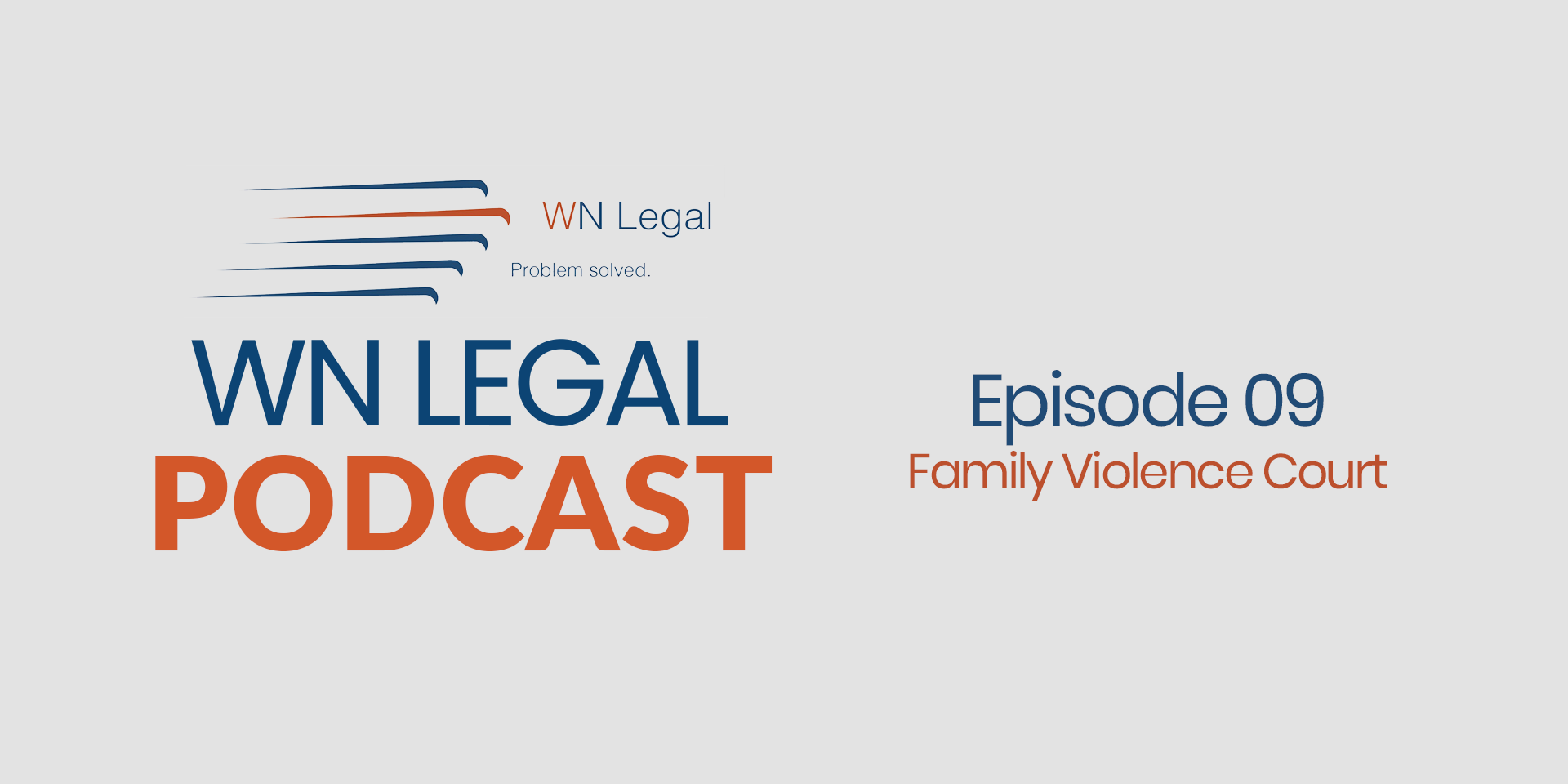Disclaimer: This blog is not meant to be legal advice specifically for your case or your scenario. The podcast is purely a discussion in respect to informing the public of what to do when you are facing certain circumstances.
Do you have a family violence matter to settle? This week on the WN Legal Podcast, Khew will be exploring the circumstances surrounding bail when the victim and the accused are in a relationship, and they have reconciled after the dispute.
Subscribe to our YouTube channel for the latest updates!
What happens if an accused person had been charged after a domestic dispute with their partner? If they have reconciled after the dispute, but the dispute gave rise to a charge whether that may be assault, breach of a restraining order or a related domestic dispute – the accused may entitled to enter a court programme called the Family Violence Court Programme.
Khew: This programme is mainly aimed to rehabilitate the accused persons, as far as I’m aware. I may be wrong, and I put a caveat on this, but as far as I’m aware the Family Violence Court is rehabilitative court programme. What they do is to aim to allow the offenders to gain an insight towards the offending in domestic circumstances.
Khew: These programmes are aimed at ensuring that the offender when they actually are charged, to allow them to have an opportunity to go through court based counselling programmes. These programmes they last from perhaps six months to eight months, sometimes even a year. I had one that a gentleman had been in there for quite a long time. But usually, it’s about three to six months. These programmes require the offender to first enter a plea of guilty and admit to the offence or an anticipated plea at least. But as far as I’m aware from practice usually the offender would have to enter a plea of guilty before they can be assessed to enter into the Family Violence Court programme.
However, if you don’t agree with the charges and intend to plead guilty, you should seek legal advice. The Family Violence Court is predominately around entering a plea of guilty and going through the court programme.
So how does the Family Violence Court operate?
Khew: The offending type of behaviour usually they are revolving around assault, assault involving bodily harm or anything, or any actions or conduct that would occur that is illegal out of a dispute between the parties. Breach of violence restraining orders can also fall into this category, so when a former partner they’ve instituted a restraining order application against the accused person. The accused person starts text messaging, that happens quite regularly, we have to be very careful there because there’s a three strike rule for violence restraining orders. So upon the third strike of breaching a violence restraining order prison terms, a term of imprisonment is something that the court will consider and can consider.
Khew: The Family Violence Court programme, when an accused enters into this programme they are actually either listed at first instance by the court or by being referred in from the investigating officer or the prosecution. Because they categorised the offending behaviour as one that arises out of a domestic dispute, or the accused person who is charged and is appearing in court can also elect to enter into the Family Violence programme. Because sometimes the court or the police prosecution cannot just identify that the offending behaviour came out because of domestic dispute. Certain charges can’t go through the Family Violence programme, most notably indictable offences, because they need to go to the District Court. Indictable offences are offences they are serious, and they carry more significant term of imprisonment. They can’t be dealt with by the Magistrates Court, they would have to be dealt with in the District Court and for that reason the Family Violence programme may not entertain offenders with indictable offences.
Generally, the Family Violence programme is for summary offences, or either offences that are no elected to be prosecuted in the district court.
Once you enter the Family Violence Court, a lawyer will provide you with legal advice and see whether or not you agree with the facts, or the circumstances of the alleged case. However, if you do not agree, you can choose to enter into a programme or choose not to and be sentenced forthwith.
Seek Legal Advice
Any comments made associated with the Family Violence Court Program was through my personal experience as counsel in the Court system. This podcast may not conclusively or accurately depict how the Family Violence Court Program works. For further information, please visit the Magistrates Court Website.
If you find yourself facing a similar circumstance, please reach out to us at WN Legal for advice relevant to your unique situation.











